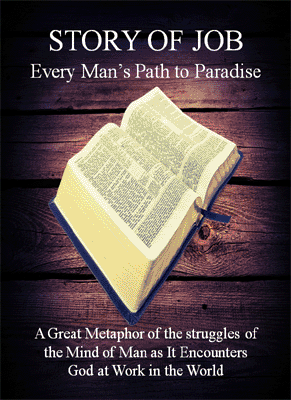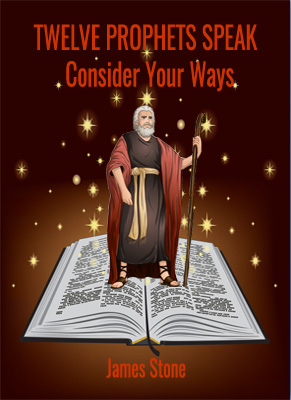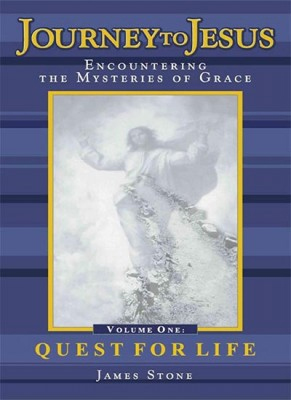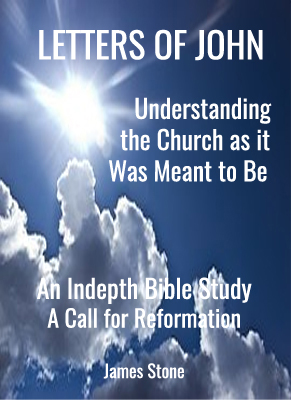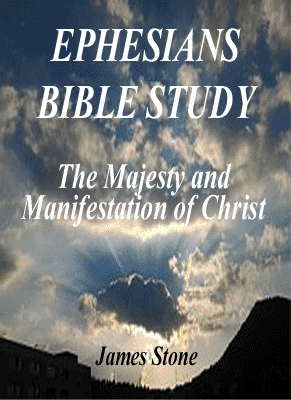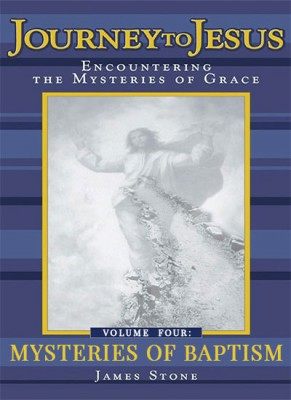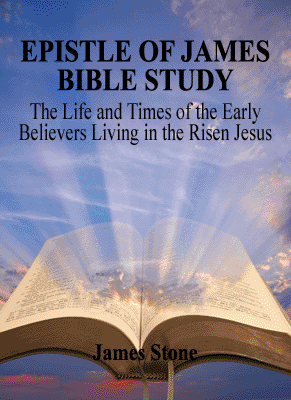Story of Job: Every Man’s Path to Paradise
$15.00 – $30.00
The story of Job offers an answer to the question that always seems to be raised when tragedy strikes man: “Why did this happen?” Suffering in a world that God loves is difficult to grasp, especially to those who believe, as the author of Job stated, that all things are controlled by God. Man often wonders, “How could a loving God allow this calamity to occur?”
Story of Job under girded by two presuppositions of all things created.
Even to begin to struggle with understanding the why question—“Why do bad things happen to good people”— there are two presuppositions that must be recognized. First, the natural created process of the ways of life causes physical things to be prone to weakness, inclined to decay, and disposed to die (1 Cor. 15:42-44). Secondly, cruel and violent behavior is often perpetrated on other creatures by the degradation of the human mind (Rom. 1:18-32).
Ultimately, the answer to the why question will evolve out of understanding why these two negative presuppositions are permitted to exist in a positive world. It is to understand why God “placed at the east of the Garden of Eden Cherubims, and a flaming sword which turned every way, to keep the way of the tree of life” (Gen. 3:24).
The first presumption can be illustrated by observing several examples of the way of most things created. The sunrise only occurs after the sunset. The day follows the night. The bloom of the flower comes out of the planting of the seed. Spring occurs after fall. God explained this profound mystery of good coming out of what is often perceived as that which is less than good to Noah. After the great flood, God said “While the earth remaineth, seedtime and harvest, and cold and heat, and summer and winter, and day and night shall not cease” (Gen. 8:22). In others words, a day of life for the creature will always have an evening and a morning (Gen. 1:1-31).
In the beginning of creation according to the author of Genesis, God made the darkness and the light, the earth and the heaven, the sea and the land, the ground and the grass, the sun and the moon, the water and the fish, the ground and the living creatures, and the male and the female. Mysteriously, it is not only impossible to have one without the other, but also the manifestation of one occurs only in the absence of the other.
Jesus proclaimed this great mystery when he said, “Verily, verily, I say unto you, Except a corn of wheat fall into the ground and die, it abideth alone: but if it die, it bringeth forth much fruit” (John 12:24). Everything in the natural process of life does have its seedtime and its harvest, its hot and its cold, its day and its night, and its evening and its morning. In the wonder of the created world, the potential for much fruit of the planted seed occurs only when the seed falls to the ground and dies.
Story of Job is not about wickedness and goodness of man.
With the physical (temporal) being animated by the spiritual (eternal), it will require all things physical to be renewed to perpetuate their existence: “In the morning [all things physical] flourisheth, and groweth up; in the evening [they are] cut down, and withereth (Ps. 90:6). The seed falling to the ground and dying, the setting of the sun to usher in the night, and the withering of the fall do not occur because of their wickedness. Neither do the tasteful fruit, the glorious sunrise, and the bloom of the spring occur because of their goodness. This natural progression of withering and flourishing of all things physical, without any failure or merit of their own, is the order of every created entity.
So it is with man. Since the treasure of life for man is in an earthen vessel, the experiences of life will occur in a physical body that is prone to weakness, inclined to decay, and disposed to die (1 Cor. 15:42-44). This natural process of all things physical to be weak, to decay, and to die does not occur because of an innate wickedness of man. Paul simply stated, “We have this treasure in earthen vessels, that the excellency of the power may be of God, and not of us” (2 Cor. 4:7).
He would also add that, “Though our outward man perish, yet the inward man is renewed day by day” (2 Cor. 4:16). Many experiences of life just naturally happen to man because the treasure of life is in an earthen vessel without any regard to wickedness or goodness.
Story of Job is a tale about what goes on in Job’s mind.
In addition to recognizing that many things happen in the physical world simply because of the ways of life (Acts 2:28), it also must be understood that many times bad things happen because God has given freedom to the thinking process of man. Although every living organism will fight to survive and even kill to get their food, there is only one order of created beings that continually create death camps, mass genocides, and shootings in public places. Sadly, it is only the human species of creation that acts with such cruel and wicked behavior.
Since this behavior is exhibited only in the human being among all living organisms, there must be something innate in the nature of man that will allow this unnatural behavior to occur. The innateness of this behavior, however, is not because man was created with a cruel, wicked nature. The record is clear that the creation of man was judged by God to be nothing but “very good” (Gen. 1:31). Man was not created nor is he born into the world with any kind of defect in his nature. Yet, that defective, violent nature can and often does evolve. Again, it is a behavior (death camps, mass genocides, and shootings) that is exhibited only by the human being.
Man was created with a mind unlike any other mind found in any living organism. He can do with his mind what no other species of creation can do with their minds. Because man not only thinks, feels, and wills with his mind but also has the capability to think about his thinking, he can develop a reservoir of knowledge by which to guide his actions. It is in the reality of this characteristic of what it means to be human as opposed to any other created entity that allows the possibility for wicked, cruel behavior to be developed.
Man is given, as an act of creation in the birthing process of life itself, the ability to comprehend, the ability to learn. Again, this unique ability is a freedom that can only be expressed ultimately by the mind of man. In addition, this freedom is also unique only in the mind of man.
In other words, once this freedom is exercised by the mind of man to develop a reservoir of knowledge to guide behavior, the exact behavior guided by the reservoir of knowledge will occur. Once the freedom to exercise this freedom occurs, man is no longer free. He becomes a slave to his thinking. One of the early followers of Jesus simply summarized it as, “Know ye not, that to whom ye yield yourselves servants to obey, his servants ye are to whom ye obey” (Rom. 6:16). Once the freedom to exercise the freedom to comprehend occurs, all men become slaves to what they comprehend. Every man becomes guided by his own perspective.
Story of Job reveals that men becoming slaves to what they comprehend.
It is within the freedom given to the mind of man to be able to comprehend that enables the possibility of faulty or defective thinking to exist. It is the reason why man, created perfectly good with no inclinations to wickedness, can develop imperfect behavior that is far from the goodness of which he was created. Wickedness is not hereditary; it is always the product of the human mind. More specifically, it is the product of human thinking gone wrong.
Paul illustrated this point when he wrote to the Romans, “Because that, when [the ungodly and unrighteous men] knew God, they glorified him not as God, neither were thankful; but became vain in their imaginations, and their foolish heart was darkened” (Rom. 1:21). The problem began before they were ungodly and unrighteous when they were intimately experiencing God as an undifferentiated being. Their failure was, although they were experiencing God, they never “glorified him as God, neither were thankful.” The ground of their failure, according to Paul, began with the vain imaginations of their mind.
Just how long did it take in the original creation of man before Eve began to perceive how good it would be to discern for herself what was good and what was evil? She was given the freedom to comprehend, but her learning took her down and away from God by the act of her comprehension. She, also, in her vain imaginations began to perceive that this ability to discern would make her wise (Gen. 3:1-6). Once partaking in the freedom of her mind to perceive, she, too, became a slave to her comprehension (Gen. 3:7-14).
The real paradox of the freedom of the mind to be able to think about its thinking is the seeming impossibility to do anything else but begin to perceive that it can control its own destiny. When the knowledge of the mind comes through the observations of the senses instead of the illumination of the Spirit, the mind itself will begin to think that it is the core of its existence. The exercise of the mind through its sensing network will become the sole architect of its behavior. With the ability to comprehend, unique to the human mind, comes the ability to comprehend wicked and cruel behavior.
Paul, in his letter to the Romans, further explained this process of the downward road to destructive behavior. He wrote:
For the wrath of God is revealed from heaven against all ungodliness and unrighteousness of men, who hold the truth in unrighteousness; because that which may be known of God is manifest in them; for God hath showed it unto them. For the invisible things of him from the creation of the world are clearly seen, being understood by the things that are made, even his eternal power and Godhead; so that they are without excuse:
Paul added,
Because that, when they knew God, they glorified him not as God, neither were thankful; but became vain in their imaginations, and their foolish heart was darkened. Professing themselves to be wise, they became fools, and changed the glory of the uncorruptible God into an image made like to corruptible man, and to birds, and four-footed beasts, and creeping things. Wherefore God also gave them up to uncleanness through the lusts of their own hearts, to dishonour their own bodies between themselves: Who changed the truth of God into a lie, and worshipped and served the creature more than the Creator, who is blessed forever. Amen.
He further stated,
For this cause God gave them up unto vile affections: for even their women did change the natural use into that which is against nature: And likewise also the men, leaving the natural use of the woman, burned in their lust one toward another; men with men working that which is unseemly, and receiving in themselves that recompense of their error which was meet.
Finally, he wrote,
And even as they did not like to retain God in their knowledge, God gave them over to a reprobate mind, to do those things which are not convenient; being filled with all unrighteousness, fornication, wickedness, covetousness, maliciousness; full of envy, murder, debate, deceit, malignity; whisperers, backbiters, haters of God, despiteful, proud, boasters, inventors of evil things, disobedient to parents, without understanding, covenantbreakers, without natural affection, implacable, unmerciful: Who knowing the judgment of God, that they which commit such things are worthy of death, not only do the same, but have pleasure in them that do them (Rom. 1:18-32).
Again, the process of this downward road to wicked and cruel behavior began with, “When they knew God, they glorified him not as God, neither were thankful; but became vain in their imaginations, and their foolish heart was darkened. Professing themselves to be wise, they became fools.” The end of the descending road culminated with, “And even as they did not like to retain God in their knowledge, God gave them over to a reprobate mind, to do those things which are not convenient.” The human mind created to be very good, after exercising its freedom to comprehend, becomes very bad in its comprehension.
All of the atrocities ever perpetrated on man can be found in that long list of the consequences of a reprobate mind. To emphasize, the “inventors [a discoverer, that is, contriver] of evil things,” according to Paul, is the product of human thinking. Again, wickedness, even extreme cruelty, is not hereditary; it is always the product of the human mind.
With the literal meaning of reprobate being “worthless mind (translated “debased mind” by one translation), Paul implied that wicked, cruel behavior is the comprehension of human thinking gone wrong. He describes this fall of the human mind to the Philippians:
For many walk, of whom I have told you often, and now tell you even weeping, that they are the enemies of the cross of Christ: Whose end is destruction, whose God is their belly, and whose glory is in their shame, who mind earthly things (Phil. 3:18, 19).
Story of Job is the challenge of the human mind.
The glory given to the human mind to be able to comprehend, to gain comprehension, becomes the shame of man when the exercise of that mind is turned to earthly things. When the human mind begins to perceive that its own thinking can be as God, the results can only be the development of wicked and cruel behavior. Mysteriously, this man of sin must first be revealed before man can become the man of righteousness (2 Thess. 2:1-4).
In the wonder of the created mind of man, the wickedness of man is a perquisite before man can come to know the goodness of God. The good can only be known by experiencing the bad. It is, as in the story of Job, every man’s path to the Tree of Life in the Garden of Eden.
Again, as Paul wrote to the Romans, this process that occurs in the natural working of the mind happens
“Because that, when they knew God, they glorified him not as God, neither were thankful; but became vain in their imaginations, and their foolish heart was darkened” (Rom. 1:21).
All men know (intimately experience) God from the beginning of their existence. In other words, whether it was by the original creation of man or by the birthing process of every man “without him [the Expression of God] there was not [and is not] anything made that was made” (John 1:3). God is the light that lights every man who comes into the world (John 1:9).
At a very early age, possibly soon after the infant takes the first breath, man begins to exercise his mind largely through and by the sensing network. This truth is illustrated again by Paul in his description of the downward road. He wrote to the Roman saints:
For the wrath of God is revealed from heaven against all ungodliness and unrighteousness of men, who hold the truth in unrighteousness; Because that which may be known of God is manifest in them; for God hath showed it unto them. For the invisible things of him from the creation of the world are clearly seen, being understood by the things that are made, even his eternal power and Godhead; so that they are without excuse: Because that, when they knew God, they glorified him not as God, neither were thankful; but became vain in their imaginations, and their foolish heart was darkened (Rom. 1:18-21).
The meaning behind the word used by Paul that is translated the wrath of God is “properly desire (as a reaching forth or excitement of the mind.)” It, in turn, is derived from a root word meaning, “to stretch oneself, that is, reach out after (long for).”
How long after the birth of the child does the mind begin to reach out after or long for what it observes?
The reaching forth of the mind through the observation of the senses eventually develops the belief of independence as a differentiated being. The glorifying of itself starts the mind down a long downward road to destruction unless God intervenes. The punishment at the end of the road is the natural result of a mind consumed with itself. In other words, God does not punish man because he has committed sin. The wrong done by man contains within itself the punishment of the wrong done.
The story of Job proclaims when man exercises the freedom to comprehend, he becomes a slave to what he has comprehended. Eventually, the bondage of the potential and now active destructive behavior in the sin drives the man to despair. The man of sin has been revealed by the circumstances of uncontrollable wicked behavior. God has so worked in the natural to prepare the way for the coming of the spiritual.
The “wilderness experiences” in the story of Job
In the time of Jesus, the man called John the Baptist illustrated this profound truth by his life. He not only was the man who prepared the way for the coming of the God-Man Jesus, he is the great parable, the ultimate metaphor, of the preparation of all men for the coming of Jesus into their lives. The Gospel of John simply declared: “There was a man sent from God, whose name was John. The same came for a witness, to bear witness of the Light, that all men through him might believe” (John 1:6, 7).
It is the wilderness experiences of all men, as illustrated by the life of John, which prepare the way for the coming of Christ into their lives. Hear the cry of one who experienced such calamities:
Of the Jews five times received I forty stripes save one. Thrice was I beaten with rods, once was I stoned, thrice I suffered shipwreck, a night and a day I have been in the deep; in journeyings often, in perils [danger] of waters, in perils of robbers, in perils by mine own countrymen, in perils by the heathen, in perils in the city, in perils in the wilderness, in perils in the sea, in perils among false brethren; in weariness and painfulness, in watchings often, in hunger and thirst, in fastings often, in cold and nakedness (2 Cor. 11:24-27).
After experiencing these many wilderness experiences, Paul was still able to say to others who were going through similar rough places, “And to you who are troubled rest with us, when the Lord Jesus shall be revealed from heaven with his mighty angels [literal translation of angels is messengers]” (2 Thess. 1:7). It is always the wilderness experience, the messenger of God, who prepares the way for the coming of Jesus to bring deliverance: “As it is written in the prophets, Behold, I send my messenger before thy face, which shall prepare thy way before thee” (Mark 1:2). This is what is happening in the story of Job.
In addition, Paul stated, concerning them who were causing the rough places, “Seeing it is a righteous thing with God to recompense tribulation to them that trouble you” (2 Thess. 1:6). He also added, “In flaming fire taking vengeance on them that know not God, and that obey not the gospel of our Lord Jesus Christ: Who shall be punished with everlasting destruction from the presence of the Lord, and from the glory of his power” (2 Thess. 1:8, 9). Those who act in cruel and wicked behavior will receive their just punishment. You can rest assured that no one gets away with anything. The story of Job illustrates this point.
Story of Job is the anguish of a suffering soul.
Finally, the why question, above all else, is the cry of a suffering soul as death is being experienced. As Jesus was dying on the cross, his cry was, “My God, my God, why hast thou forsaken me?” (Matt. 27:46). His cry did not come out of a failure to understand the ways of life. He knew that He would be raised from the dead. His cry did not come from a lack of understanding that mean-spirited people have the capability for cruel and wicked behavior. His cry was the anguish of a suffering soul.
“My God, my God, why hast thou forsaken me” is actually a testament to the power of life. It there was little pain in experiencing the dying process, then there would be little joy in the living process. Jesus knew that he would be raised from the dead, but the glory of the resurrection is inseparably tied to the agony of death. The why question is ultimately the cry of a person who knows he has this treasure of life in an earthen vessel.
Story of Job questions man’s trust in God.
The real thought that should come to man when bad things happen to good people should not be just the why, but ultimately the issue in experiencing the dying process is trust. Story of Job proclaims that bad things will happen in life, not only from the natural order of the ways of life, but also from the degradation of the human mind. Story of Job has Job not only suffering from natural calamities, but also he was suffering from the cruel behavior of wicked men. It is a hard lesson to learn, but regardless of how man experiences the mortality of his existence, can he trust God?
Can man trust God to build around him a cocoon of protection, as in the metamorphosis of the caterpillar to the butterfly?
Can he trust God that a great metamorphosis is at work in his life?
Can he trust God that something very beautiful is coming out of something that is perceived to be very ugly?
Is this not the real story of Job?
The author of the book uses a powerful metaphor of a man named Job and his interaction with his friends, Eliphaz, Bildad, Zophar, and Elihu, to reveal the process of perfection—the path to Paradise. The story of Job reveals the great metamorphosis of how God works through the circumstances of life to bring man to where he is intended to dwell.
Created to abide in Paradise, man participates in the way of the Tree of Life (with its why and trust issues) which takes man through his dependency, his independency, and finally to his interdependency. This glorious union of God, Job, and his family and friends is the ultimate expression of soul-satisfaction in the world. The story of Job is the metamorphosis of experiencing the way of the Tree of Life in Paradise. This is the great lesson of the story of Job. It can also be your story.
If you desire Story of Job: Every Man’s Path to Paradise immediately downloaded as Part 1 (16 Recordings, Part 2 (17 Recordings), Complete Series (33 Recordings) or in written book format (595 pages), please click the above Immediate Download tab.
If you desire Story of Job: Every Man’s Path to Paradise sent to your home by regular mail as Part 1 (16 CD’s, Part 2 (17 CD’s), Complete Series (33 CD’s), please click the above Regular Mail CD’s tab.

